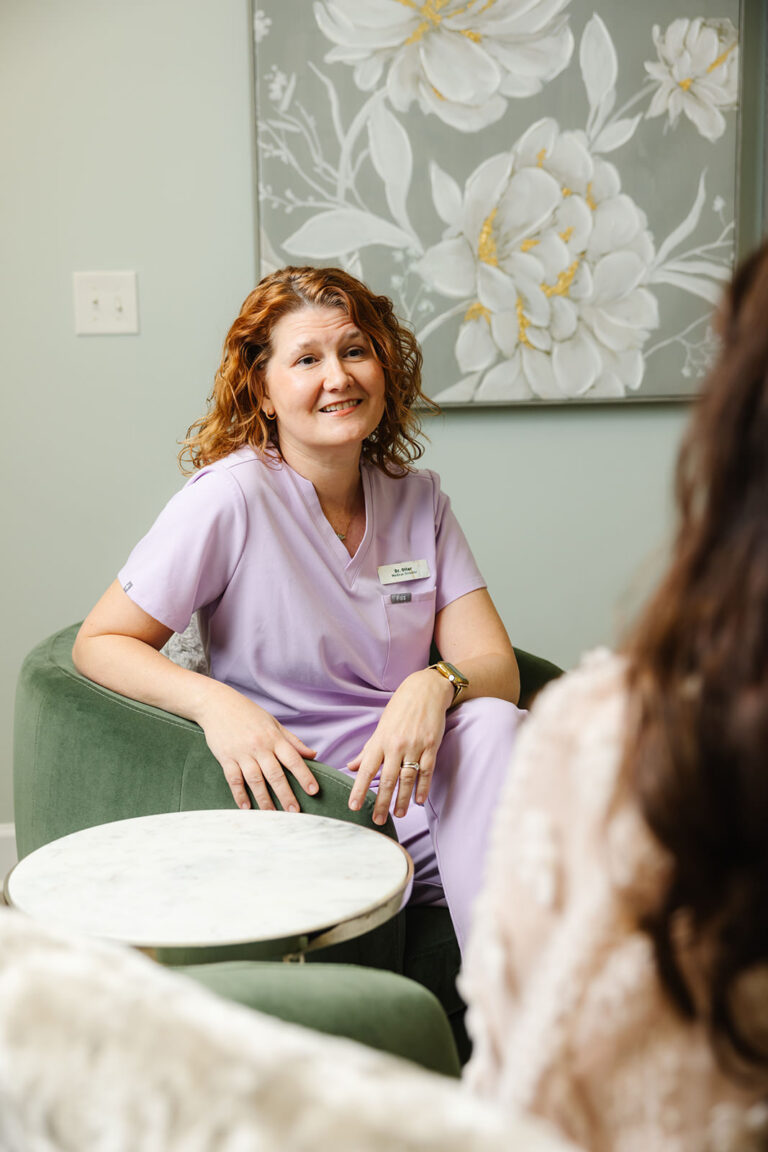Menopause Myths: Separating Fact from Fiction
Navigating menopause can be challenging, especially when there’s so much misinformation surrounding it. Let’s tackle some of the most common menopause myths and set the record straight with facts to help you understand this natural phase of life.
Myth #1: Menopause Happens Overnight
Fact: Menopause is not a sudden event; it’s a gradual process that occurs in three stages:
- Perimenopause: This transitional phase can last anywhere from 4 to 10 years. During this time, hormone levels, especially estrogen, begin to fluctuate, leading to the onset of symptoms like irregular periods and hot flashes.
- Menopause: Officially defined as 12 consecutive months without a menstrual period, menopause typically occurs between ages 45 and 55.
- Postmenopause: After menopause, you enter postmenopause, where symptoms may continue but generally decrease in intensity as your body adjusts to lower hormone levels.
So, menopause is more of a journey than a one-time event.
Myth #2: Menopause Starts at a Specific Age
Fact: There’s no set age for menopause. While the average age in the U.S. is 51, menopause can occur earlier or later, depending on factors like genetics, lifestyle, and overall health. Some women may start experiencing symptoms as early as their late 30s or as late as their 60s. The timing of menopause is unique to each individual, making it impossible to predict an exact age.
Myth #3: Hot Flashes Are the Only Symptom of Menopause
Fact: Hot flashes may be the most talked-about symptom, but menopause can bring a wide range of other symptoms. Many women also experience:
- Night sweats
- Mood swings and irritability
- Sleep disturbances like insomnia
- Vaginal dryness and discomfort during intercourse
- Decreased libido
- Urinary issues
- Weight gain
- Thinning hair or changes in skin texture
Each woman’s experience is unique, and symptoms can vary widely in intensity and duration.
Myth #4: Menopause Causes Depression
Fact: Menopause itself doesn’t cause clinical depression, but hormonal changes can lead to mood swings, irritability, and feelings of sadness. Additionally, the physical symptoms of menopause (like sleep issues) and the life changes that often accompany this time can sometimes exacerbate existing mental health conditions or lead to emotional challenges. If you’re experiencing significant mood changes, it’s important to talk with a healthcare provider to manage both physical and emotional health effectively.
Myth #5: Hormone Replacement Therapy (HRT) is Dangerous
Fact: Hormone Replacement Therapy (HRT) has a complex history. Initially promoted as a near-universal solution, it later faced criticism due to concerns about risks such as breast cancer, based on early studies. However, more recent research shows that HRT, when customized and used correctly, can be safe and beneficial for many women. Individualized hormone therapy has shown to alleviate symptoms like hot flashes, night sweats, and vaginal dryness, with minimal risk when monitored by a healthcare professional. Always consult your doctor to discuss the pros and cons based on your personal health history.
Myth #6: Weight Gain is Inevitable with Menopause
Fact: While hormonal changes during menopause can impact metabolism and fat distribution (especially around the abdomen), weight gain isn’t inevitable. Lifestyle factors—such as diet, exercise, and sleep habits—play a significant role in managing weight during this phase. With a balanced diet, regular physical activity, and good sleep hygiene, many women successfully manage their weight through menopause. Today, there are also effective strategies and treatments available to support healthy weight management during this stage of life.
Menopause is a natural transition, not a one-size-fits-all experience. By debunking these common myths, we hope to empower you with the information you need to navigate this journey with confidence. Remember, menopause affects each woman differently, and understanding the facts can help you make informed decisions about your health and wellness. If you have questions or need support, don’t hesitate to reach out to a healthcare provider who specializes in women’s health.




